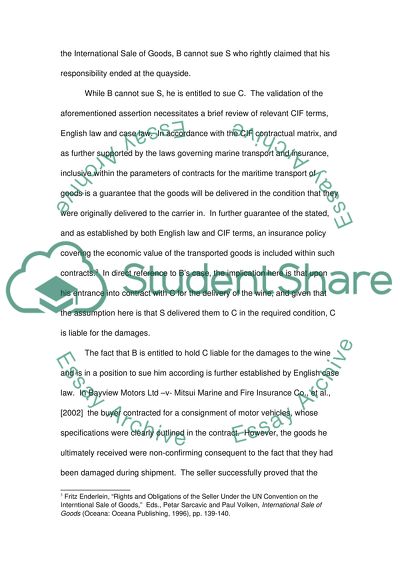Cite this document
(“International Trade Contracts Essay Example | Topics and Well Written Essays - 2500 words”, n.d.)
Retrieved from https://studentshare.org/law/1519014-international-trade-contracts
Retrieved from https://studentshare.org/law/1519014-international-trade-contracts
(International Trade Contracts Essay Example | Topics and Well Written Essays - 2500 Words)
https://studentshare.org/law/1519014-international-trade-contracts.
https://studentshare.org/law/1519014-international-trade-contracts.
“International Trade Contracts Essay Example | Topics and Well Written Essays - 2500 Words”, n.d. https://studentshare.org/law/1519014-international-trade-contracts.


